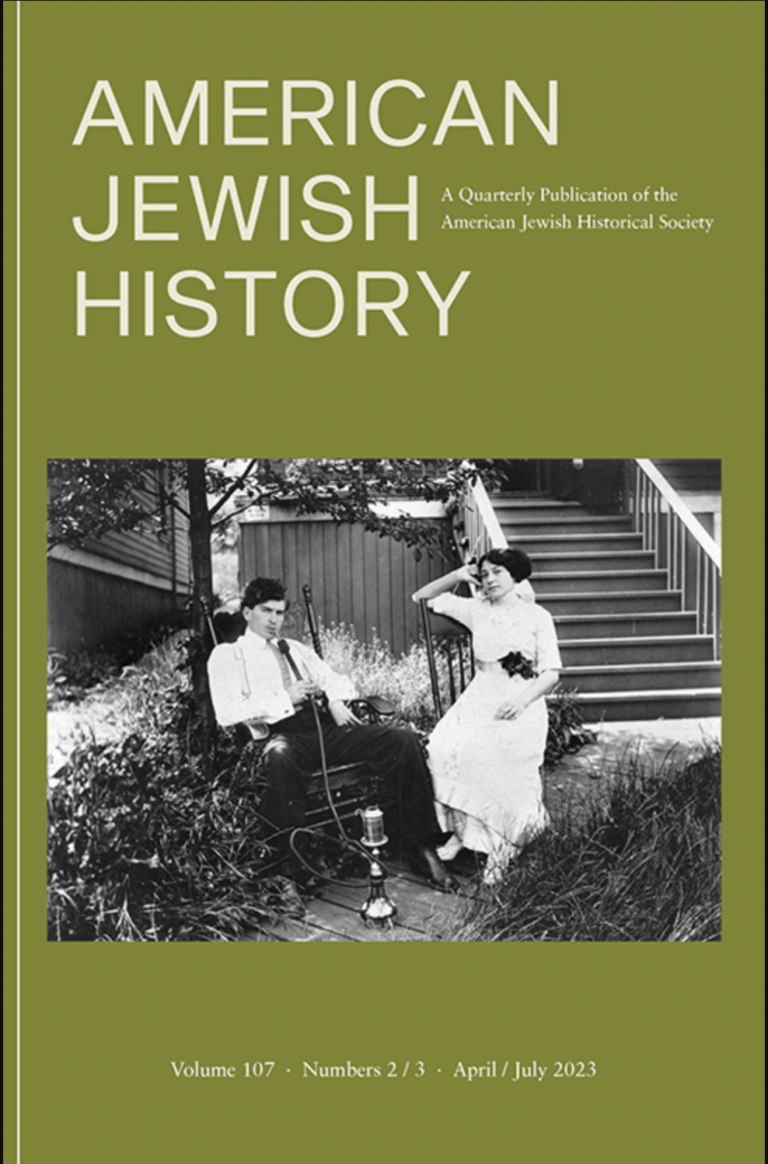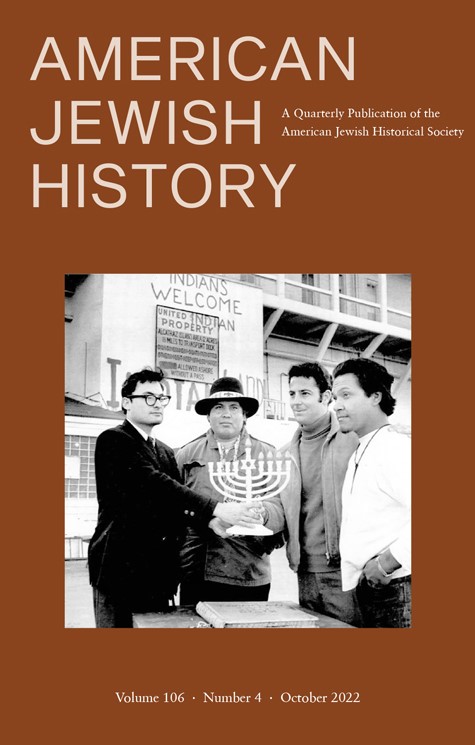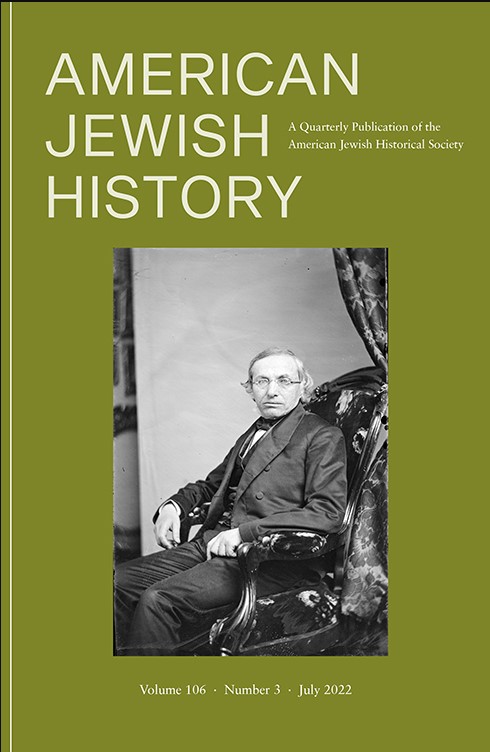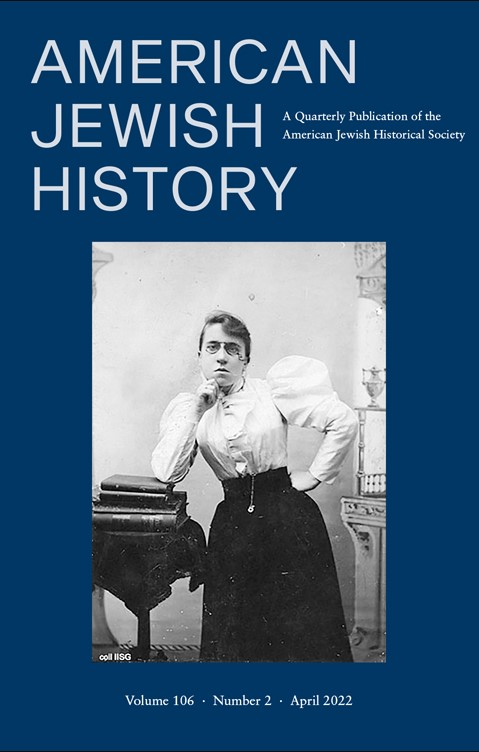Dear AJH Readers,
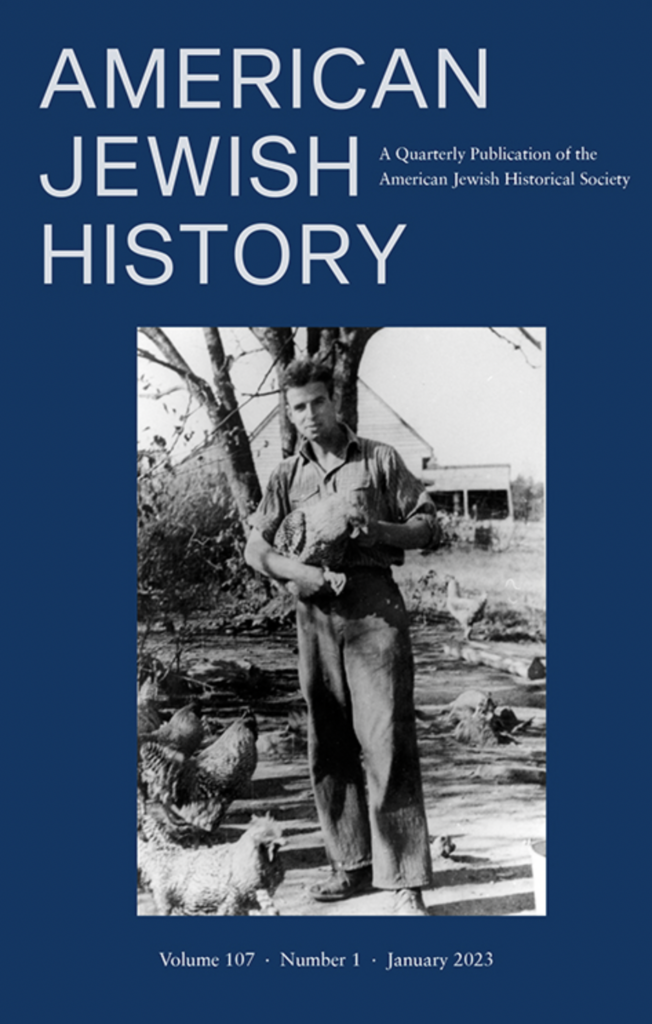
If the chickens on the front cover of our latest issue could talk, they would say a lot about American Jewish history. Even as images, however, they offer an important entry into to the first two essays’ complementary accounts of Jewish farming communities in the 1930s and 1940s.
The first essay, by Daniel Rosenblatt, brings us deep into the history of the present-day leafy Borough of Roosevelt, New Jersey. In 1936, the town began as Jersey Homesteads—a New Deal-related, experimental, “communitarian” settlement for Jewish garment workers transplanted from the city. Through archives and oral histories, Rosenblatt brings us into the daily lives of the residents as they sought to realize their utopian vision of society over the next three years: working the land, organizing social and group activities, and creating a unique vision of workers’ equality.
Follow the chickens southward, we find our way to Andrew Sperling’s essay chronicling 1930s and 40s efforts to resettle European Jewish refugees into short-lived farming collectives in Virginia and Georgia. Like many such initiatives, they fell short of their goals: but Sperling pushes us to recognize the local challenges that the refugees faced in their labors, from unfavorable land to the discomfiting racial and religious landscape. While raising chickens and cultivating crops could be learned, in other words, other factors beyond the refugees’ control played a significant role in destabilizing the communities they sought to establish.
Turning the page brings us to Susan Glenn’s fascinating legal history featuring the impactful mid-century career of attorney and legal scholar Leo Pfeffer (connected for nearly two decades with the American Jewish Congress). Glenn describes Pfeffer’s tireless work to loosen American adoption law’s religious restrictions, and its complex connections Pfeffer’s better-known arguments on church/state separation. In the process, Glenn brings clarity to the ways American Jews were evaluated for fitness as potential adoptive parents—while presenting broader (chicken and egg?) questions about the relationship between children’s and parental identity that such arguments evoked.
Add to that five book reviews, edited by our own Jeopardy champion Melissa Klapper, and you have a meaningful read for this complex holiday period.
Of course, the perceptive among you (who are not distracted by the chickens) might also ask: “It’s late 2023. Why did I just get the January 2023 issue?” We say: look ahead, and the year will fly by. The double Issue 2/3 is in process, and Issue 4 is with our copyeditor (the fantastic Angela Erisman). So keep checking your (snail or e-) mail and clear time in the coming months for a triple dose of insightful and illuminating work in American Jewish History—as we hope to observe soon… “may auld anachronia be forgot.”
With warm wishes,
Marni Davis, Jessica Cooperman, Judah Cohen (Editors), and Nick Underwood (Managing Editor)


